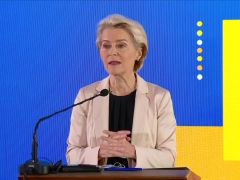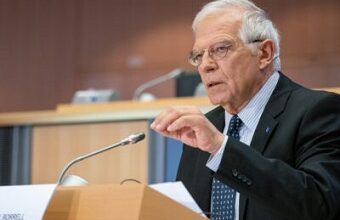The following was originally published in The Parliament magazine as an open letter from the Government of Republika Srpska to the European Union.
Bosnia and Herzegovina (BiH) is widely misunderstood. Unfortunately, for many, the image of BiH is stuck in the early 1990s during tragic civil war. Whiles scars remain, in the almost two decades since the Dayton Peace Accords there has been no recurrence of ethnic violence or any prospect of recurrence.
Nevertheless, ethnicity does matter in Bosnia and Herzegovina, as it does in many other parts of Europe, and this factor cannot be ignored as BiH works, with EU partners, to adopt necessary reforms. The BiH Constitution, an annex of the Dayton Peace Accords, established a decentralized state divided into two highly autonomous “Entities”, The Republika Srpska (“RS”) and the Federation of Bosnia and Herzegovina (“the Federation”). BiH’s three main ethnic groups, Serbs, Croats and Bosniaks, agreed in the Dayton Peace Accords on a future where no one of the groups could dominate a post-conflict government or practice discrimination against any of the others. The BiH Constitution provides strong, structural protections against such discrimination and it is a fundamental requirement for the stability and progress of BiH.
In addition, minority rights are strongly protected. BiH has ratified all major international human, civil and political rights treaties and the Constitution gives such international law priority over any conflicting law throughout BiH. In BiH–EU discussions regarding the Sejdic-Finci decision, the RS has agreed to allow all candidates to stand for election for BiH offices without regard to ethnicity.
The BiH Constitution provides that almost all governance functions of BiH reside in the Entities. This allows each entity to pursue economic reform and improvement in ways that are politically acceptable to its people and protect its economic resources. The opportunity provided by its constitutional autonomy to take legal and regulatory measures to accelerate its economic growth, encourage domestic and foreign investment, and bring its laws and regulations into line with EU requirements has been already seized by the RS.
More active EU engagement in BiH would be welcome, helping to overcome resistance to the changes needed for EU accession. But any “reform by imposition” must be rejected. Obviously, this would directly violate the civil and political rights of BiH citizens as well as international law. Reform must be based upon decisions made by the people of BiH and their elected leadership, through constitutional processes, and not forced by the High Representative, the states meeting in the self-appointed Peace Implementation Council (“PIC”) or any other manifestation of the “International Community”.
It is a sad fact that one of the reasons for the slow pace of governmental reform in BiH is the past action of various High Representatives, with support (and threats of sanctions) by the PIC. Without legal authority, High Representatives imposed new laws and institutions onto the structure established by the BiH Constitution. Many of these non-consensual changes transferred mandates from entity to central level and created new agencies and ministries at the central level. These have become bigger and more expensive each year. They refuse transparency or accountability. In general, delivery of services to the people of BiH and the related costs remain at entity and municipal levels. The central levels deliver only paper and questions and instructions to those who are actually serving the people in the entities and municipalities. Part of the reform needed in BiH is to reduce and remove unneeded bureaucracies and to strengthen the
governmental units that are providing real value to citizens.
Now is the time to carefully and realistically consider what concept for BiH is actually feasible. Both practically and legally, BiH is a decentralized country composed of the two entities. The EU must fully engage in BiH appreciating the realities and complexity of the internal relations of this country.


